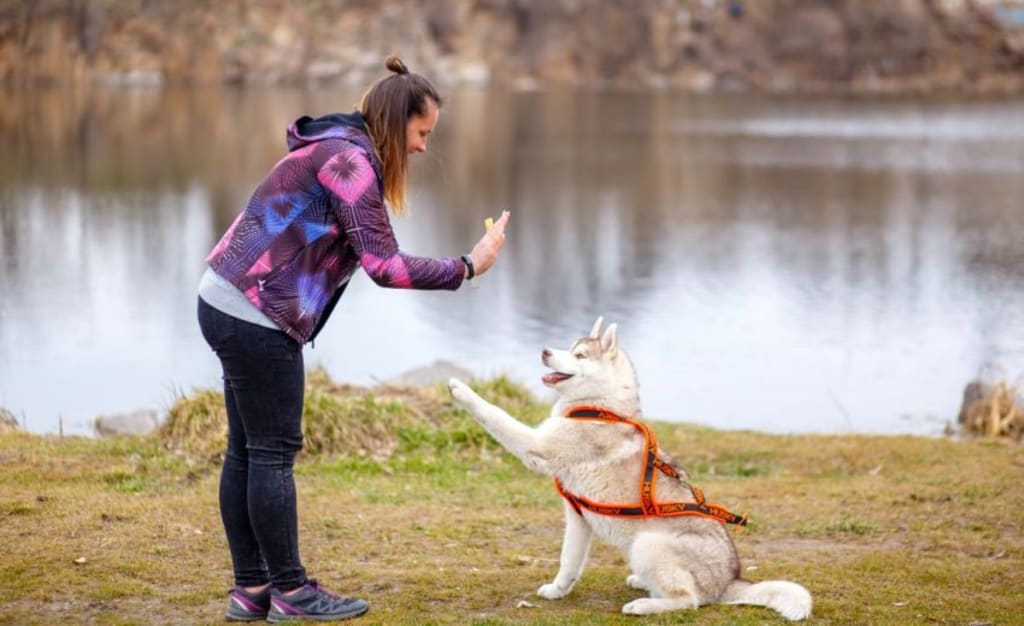Effective Dog Training Methods: A Guide for Pet Owners
Now that you have a better understanding of various Dog Training Methods, which approach will you implement in your puppy training program? Is there anything else you believe should be included in this guide?

Proper dog training is essential for creating a harmonious relationship between you and your furry companion. Not only does it make living with a dog more enjoyable, but it also helps prevent behavior problems and promotes a well-behaved pet. In this guide, we will explore some of the most effective dog training methods and tips to help you train your dog successfully.
Positive Reinforcement
Positive reinforcement is a popular and effective Service Dog Training method that involves rewarding your dog for good behavior. This can include treats, praise, or toys. The idea behind this method is that dogs are more likely to repeat behaviors that are rewarded. For example, if you give your dog a treat every time they sit on command, they will begin to associate sitting with getting a treat, and will be more likely to sit when you ask them to in the future.
Clicker Training
Clicker training is a type of positive reinforcement training that uses a small, handheld clicker to mark the exact moment your dog does something you want them to do. When your dog performs the desired behavior, you click the clicker and immediately give them a treat. This helps your dog understand exactly what behavior you are rewarding. Clicker training is a great method for teaching dogs new tricks and behaviors.
I recently enrolled my service dog in a training program and I am extremely satisfied with the results. The trainers were all certified and had a wealth of knowledge and experience in training service dogs. They were able to teach my dog the basic obedience skills, as well as specific tasks that are necessary for him to assist me with my disability. Check This Now
Operant Conditioning
Operant conditioning is a type of dog training that involves using consequences to shape behavior. This can include positive reinforcement, as well as punishment. For example, if your dog jumps on you when you come home, you can turn your back and ignore them, which is a form of punishment. Alternatively, you can give them a treat when they sit calmly, which is a form of positive reinforcement.
Punishment-based Training
Punishment-based training is a method that involves using physical or verbal punishment to stop unwanted behavior. This can include things like scolding, hitting, or using a choke collar. While punishment-based training can be effective in the short term, it can lead to long-term problems such as fear, aggression, and mistrust. In addition, punishment-based training does not teach the dog what behavior you do want them to do.
Socialization
Socialization is the process of exposing your dog to different people, animals, and environments. This helps them become well-adjusted, confident, and well-behaved pets. Socialization should start early, ideally before your dog is 12 weeks old. During this critical period, puppies are more open to new experiences and are less likely to develop fear or aggression.
Consistency
Consistency is key when it comes to dog training. Dogs learn best when they are given clear and consistent rules and boundaries. This means that everyone in the household should use the same commands and training techniques. It also means that you should be consistent with rewards and consequences. If you reward your dog for sitting one day and then ignore them the next, they will become confused and may not respond to your commands.
I highly recommend this service dog training program to anyone who is considering getting a service dog or is currently training one. The trainers were professional and dedicated, and the results speak for themselves. My dog is now a well-trained and reliable companion that greatly improves my quality of life. Click Here
Patience
Patience is also an important aspect of dog training. Dogs learn at their own pace, and some dogs may take longer than others to learn a new behavior. It's important to be patient and not to get frustrated with your dog. Positive reinforcement training can be very effective, but it takes time and repetition. Remember to keep training sessions short and enjoyable for your dog.
Training Classes
Training classes can be a great way to learn new training techniques and to socialize your dog. Classes are taught by professional trainers who can give you tips and advice on how to train your dog. They can also help you troubleshoot any behavior problems you may be experiencing. Classes are available for dogs of all ages and skill levels, from basic obedience to advanced training.
Exercise
Exercise is an important part of dog training. Dogs need physical and mental stimulation to stay happy and healthy. Regular exercise can help prevent behavior problems such as boredom, destructive chewing, and excessive barking. A tired dog is a well-behaved dog. Make sure to provide your dog with plenty of opportunities to run and play.
In conclusion, proper dog training is essential for creating a harmonious relationship with your furry companion. Positive reinforcement, clicker training, operant conditioning, socialization, consistency, patience, training classes and exercise are some of the most effective dog training methods. Remember that punishment-based training should be avoided as it can lead to long-term problems such as fear, aggression, and mistrust. With patience, consistency, and the right training methods, you can teach your dog to be a well-behaved and happy pet.
About the Creator
Personal Dog Trainer
Service Pets has all the pet services you need from Grooming, Training, Pets Hotel, Doggie Day Camp and Banfield to keep your pet looking and feeling great! CLICK HERE





Comments
There are no comments for this story
Be the first to respond and start the conversation.